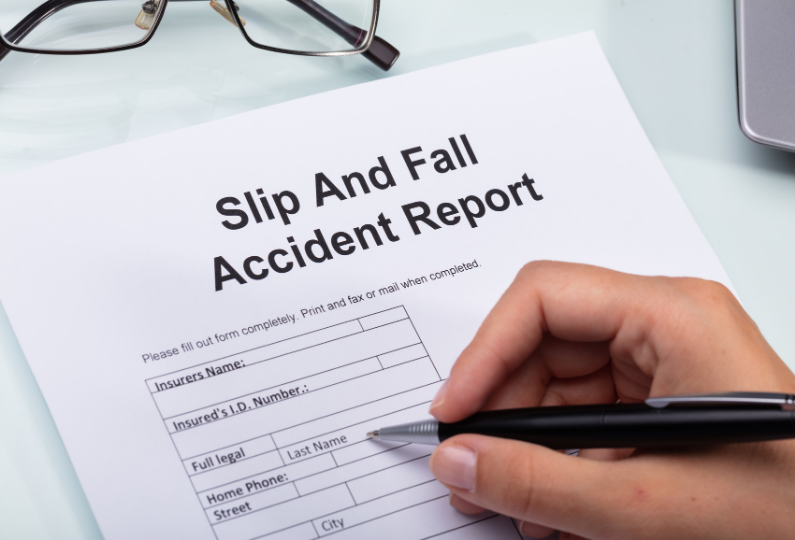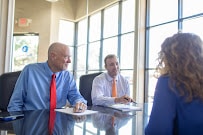No one should visit someone else’s property and become injured as a result of an unreasonably dangerous condition. Under Florida’s premises liability laws, when a person is hurt on someone else’s property due to an unreasonably hazardous condition, they can seek to hold the negligent owner or occupier liable for paying damages.
Claiming the adequate compensation you deserve after an accident is not easy, however. If you have been hurt due to a negligent property owner or property occupier in Winter Haven, FL, contact the Winter Haven premises liability lawyers at Brooks Law Group today. We are ready to discuss your case for free and without obligations on your part.
What Is Premises Liability?
Premises liability is the legal concept that property owners are responsible for ensuring visitors to their property are kept safe from unreasonable dangers. Premises liability law includes accidents such as slip and falls, swimming pool accidents, and assaults due to inadequate lighting or security, for example.
Many premises liability lawsuits involve a business or a government agency. However, claims can be filed against individual property owners as well, such as homeowners.
Like most personal injury cases, premises liability claims rely on negligence. If you have been injured on someone else’s property, you must prove that the property owner or occupier neglected to properly care for and maintain their premises and that you became injured as a result.
Premises Liability Laws in Florida
Florida has many laws on premises liability. The first thing that must be determined in any case is the classification of the visitor. Florida law does not view all visitors the same. The level of responsibility the property owner carries is not always the same.
Property owners owe invitees the highest duty of care. Invitees are individuals the property owner has invited onto the premises. The property may either be private, such as a store, or a public building, such as a sidewalk. Property owners must maintain the property so invitees do not encounter unreasonably dangerous hazards, and must correct issues as they arise.
Like invitees, licensees also have permission to enter a property, but they are not necessarily invited onto it. Licensees may include a salesperson or someone delivering a package. Licensees are afforded some protection under the law.
Lastly, trespassers are not usually protected under state law if they get hurt while on someone’s property without permission. Property owners do not generally owe any duty of care to trespassers. An exception may apply for children who trespass because of an appealing but dangerous condition, such as an unsecured swimming pool or a junk car. These are known as an attractive nuisance. It’s important to remember that property owners are not allowed to intentionally hurt trespassers, for example by setting a booby trap.
Premises liability laws in Florida are complex. For example, simply getting hurt on someone else’s property does not necessarily mean that the owner or occupier is liable. Accident victims must prove not only that a dangerous condition existed, but also that the property owner or occupier knew or reasonably should have known about it and failed to correct it.
Our Winter Haven premises liability lawyers can help you understand the laws and how they apply to your case.
Common Causes of Premises Liability
Many different types of accidents can occur on someone else’s property. Some of the most common causes of these accidents are as follows:
- Lack of maintenance – Any part of a building can become worn and broken down over time, including appliances, light fixtures, and carpet. When a property owner fails to repair and maintain these items, they can pose an unreasonable safety risk to visitors.
- Lack of security – When property owners have a lack of security cameras, faulty alarm systems, poor lighting, or defective locks, they could be held liable for criminal activity that occurs on the property. These conditions may lead to break-ins, robberies, assaults, and more.
- Slip and falls – Slip and fall accidents are by far the most common type of premises liability claim. These accidents are caused by broken stairways and steps, a lack of handrails, wet floors, unsecured wires and cords, and other similar hazards.
- Unrestrained dogs – Dog owners have a responsibility to control and restrain their animal around other people, particularly if the dog has a vicious history. Dog owners can be held strictly liable when their pet bites or attacks someone because it was not restrained or because the owner had not properly trained the animal.
- Elevator and escalator accidents – Shopping malls, office buildings, stadiums, and other properties rely on elevators and escalators. When these facilities are not safe and an accident occurs, they can result in serious injuries.
- Fires – People are injured and killed by property fires every day. Sometimes, these fires are caused by negligent actions, such as not storing flammable items properly. Other times, a property owner may have failed to maintain their smoke alarms.
- Swimming pools – Property owners who have a swimming pool are responsible for properly fencing and gating it off from the public. This is so small children do not wander onto the property and become injured in or around the pool. Property owners who fail to take the proper safety measures can be held liable.
Types of Injuries in Premises Liability Cases
 A person may sustain any number of injuries when they are involved in an accident on someone else’s property. Some of the most common injuries include:
A person may sustain any number of injuries when they are involved in an accident on someone else’s property. Some of the most common injuries include:
- Traumatic brain injuries – A person may hit their head when they slip and fall, or a fixture may fall, striking them on the head. These are just a few of the ways in which a person may sustain a traumatic brain injury during a premises liability accident.
- Spinal cord injuries – After falling on a wet floor, for example, a person may land on their back and damage their spinal cord. Or, if an elevator is unsafe, a person may hurt their spinal cord during an accident. Spinal cord injuries are some of the most severe a person can suffer.
- Neck and back injuries – Neck and back injuries may include whiplash, pulled or strained muscles, and lumbar injuries. Neck and back injuries also take a very long time to recover from and are very painful.
- Broken bones – Broken bones are extremely painful and take a very long time to heal. They also sometimes require surgery, which is very expensive. When a person has broken multiple bones, they may become incapacitated for a long time.
- Severe burns – When a fire breaks, a person may be left with severe burns. Burns are one of the most painful types of injuries a person could endure. Treatments, which sometimes involves skin grafts, can be just as painful. Burns can also result in permanent scarring and disfigurement.
Average Compensation for Premises Liability Injuries
Every premises liability case is unique. The facts of one case will never exactly match the facts of another. This means there really is no average compensation for premises liability claims. No attorney can promise exactly how much you will receive in damages for your claim. However, there are some guidelines you can follow to determine what types of compensation you could recover.
Some of the most common damages awarded in premises liability claims include:
- Medical expenses – Costs associated with medical treatment often make up the bulk of damages in premises liability cases. These expenses include physical therapy, doctor bills, medications, and transportation to and from doctor appointments.
- Lost income – If your injuries were so severe that you had to miss work, you can include your lost income in your claim. You can also include lost bonuses, benefits, vacation pay, and sick pay. If lasting disabilities will reduce your future earnings, you may be compensated for those losses as well.
- Pain and suffering – The pain and suffering you endured as a result of your injuries are real and compensable. Damages for pain and suffering are more difficult to quantify, so it is important to speak to a lawyer who can help you calculate and justify them.
- Loss of consortium – Damages for loss of consortium are available for your spouse if your injuries were so severe that you can no longer provide them with companionship or have intimate relations with them.
Contact a Premises Liability Lawyer at Brooks Law Group Today
If you have been hurt on someone else’s property due to the negligence of the owner or occupier, the premises liability lawyers in Winter Haven, FL at Brooks Law Group want to help. We can advise you about your case, and work to prove your claim, and help you pursue the maximum damages you deserve.
Call us today or contact us online to schedule a free consultation and to learn more about how we can help.













